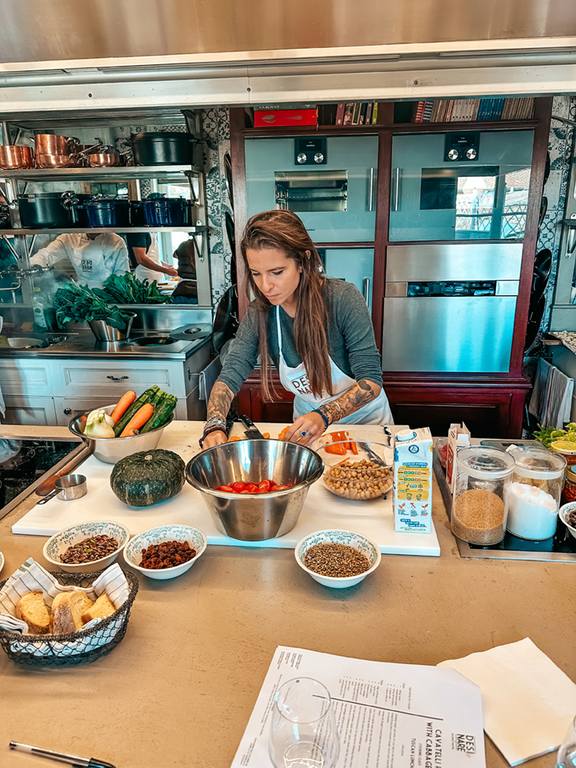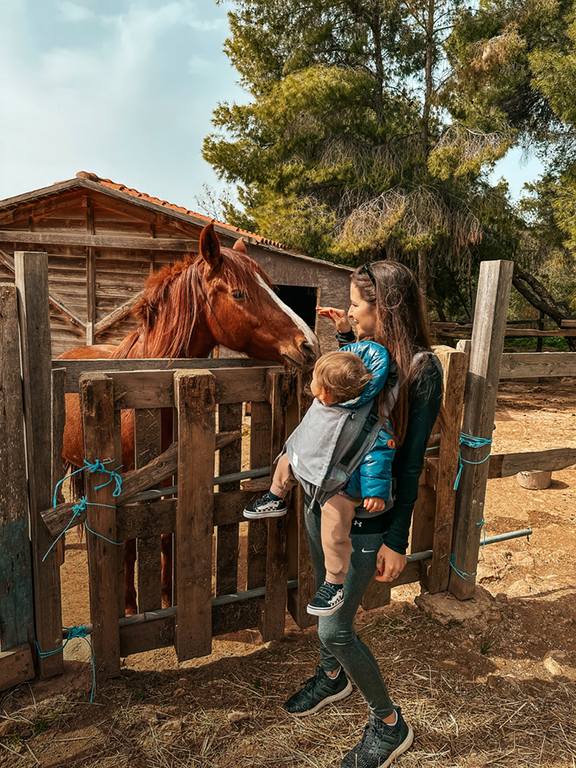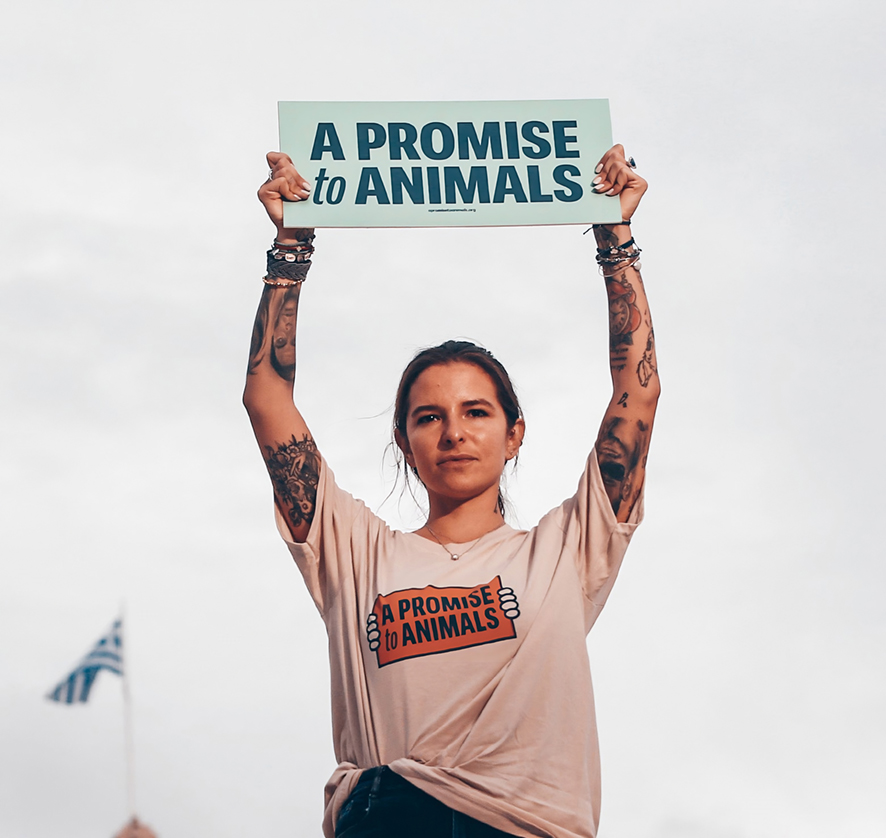The founder of the NGO titled A Promise to Animals chooses to be in the camp of empathy, respect and love for the environment, people and animals. She advocates values that lie at the heart of the philosophy of veganism, visualises a beautiful and well-rounded life for all and shares with us her own life experience of being a vegan in a nonvegan world.
Vegan or Vegetarian?
Vegan!
How did you make the decision to become vegan?
I have always loved animals and I was never comfortable with the idea of consuming meat, even though I did it. I think I avoided thinking about what I was eating (specifically, “who” I was eating), because I didn’t want to change my habits.

How did that change come into effect? Did you immediately stop eating meat and animal products or was it gradual?
My transition to veganism was gradual. At first, I stopped eating red meat and poultry, and later on fish and animal products like eggs and dairy.
Do you believe that being vegan supports a more ethical way of life?
Veganism is based on empathy and respect for all living beings. People who uphold such principles are likely to have a strong ethical compass in all aspects of their life.
Apart from animal exploitation, is the protection of our health and our environment equally important? Could this be the key to veganism?
There are certainly many reasons why someone might turn to veganism. Ethics is the most common and, for me, the most important. But from my experience, whatever the motivation for making this change, it eventually leads to a broader awareness and consideration for other aspects as well.

How important is it to read the tag when purchasing products? Should these products be eco-friendly or vegan certified?
Conscious consumers have a trained eye. There are now many symbols, and people pay attention, always according to the level of “strictness” they have decided for themselves. The good thing is that animal products are always highlighted in bold, since they belong to the category of allergens, making them easy to identify.
Could veganism trigger the evolution of our values?
Certainly, and it is entirely natural. When you learn to think before you act and begin to understand the consequences of your choices, you stop behaving selfishly and learn to live and function thoughtfully, considering others with whom you share the planet (humans, animals, the environment).
Which is easier: changing thoughts or behavior?
One leads to the other. For me, everything starts with thoughts, and behaviour changes as a result of that. Unfortunately, we often avoid thoughts that make us feel uncomfortable and could “complicate” our daily lives, prompting us to question things we took for granted and to disrupt our convenience. Overcoming this first but significant obstacle unlocks a new world.
Tell us a few things about your initiative and A Promise to Animals.
APA aims to inform and raise awareness among the public about the impact of animal farming and the consumption of animal products on animals, the environment, and human health, through information, education, and public dialogue.
What is your vision?
My vision is for the organization to function as a tool for the protection of all animals, bringing them to the forefront and proving to the world that we simply don’t need to harm anyone to live a beautiful and fulfilling life. This is what we, the people who dream of a vegan world, have in mind—a world where no one suffers for the well-being of others.
Are people today more receptive to adopting a vegan lifestyle?
There have been significant strides in the vegan movement in recent years. However, we still have a long way to go, and it’s worth noting that meat consumption is increasing in developing countries.
Have you seen a different picture from what is happening in Greece regarding veganism during your travels abroad, and in which countries?
Certainly, in countries like England, Iceland, and the Netherlands, people are much more familiar with veganism compared to Greece. In Greece, traditions are still deeply rooted, and they are closely tied to food, which presents a challenge. However, Greece is still one of the friendliest countries for a vegan to find food in since we have many traditional dishes that fall into this category.

Do you find it challenging at family gatherings?
I don’t find it difficult because I have worked on myself a lot, and I am no longer hesitant to say “no.” If a situation makes me uncomfortable, such as a dinner where meat is served, I simply don’t attend. People close to me understand and respect this decision and they know that if they want me to be present, meat should be absent from the menu.
Have people ordered vegan food because you were present at the table? How do you feel about that?
Every vegan dish is a victory. What particularly pleases me is when my family members and friends who are not vegan proudly tell me that they enjoyed wonderful vegan dishes when I was not around.
What is your favorite meal? What is your child’s favorite meal?
My favorite meal is pasta and legumes with rice (such as lentils, chickpeas). Nikos loves rice more than any other food but also enjoys artichokes and mushrooms.
What advice would you give to someone considering becoming vegan?
A person who is considering becoming vegan has already taken the most important step. All that’s left is to gradually put their thoughts into action, without necessarily cutting everything off overnight. I promise them, though, that it will be the most wonderful decision of their life!






